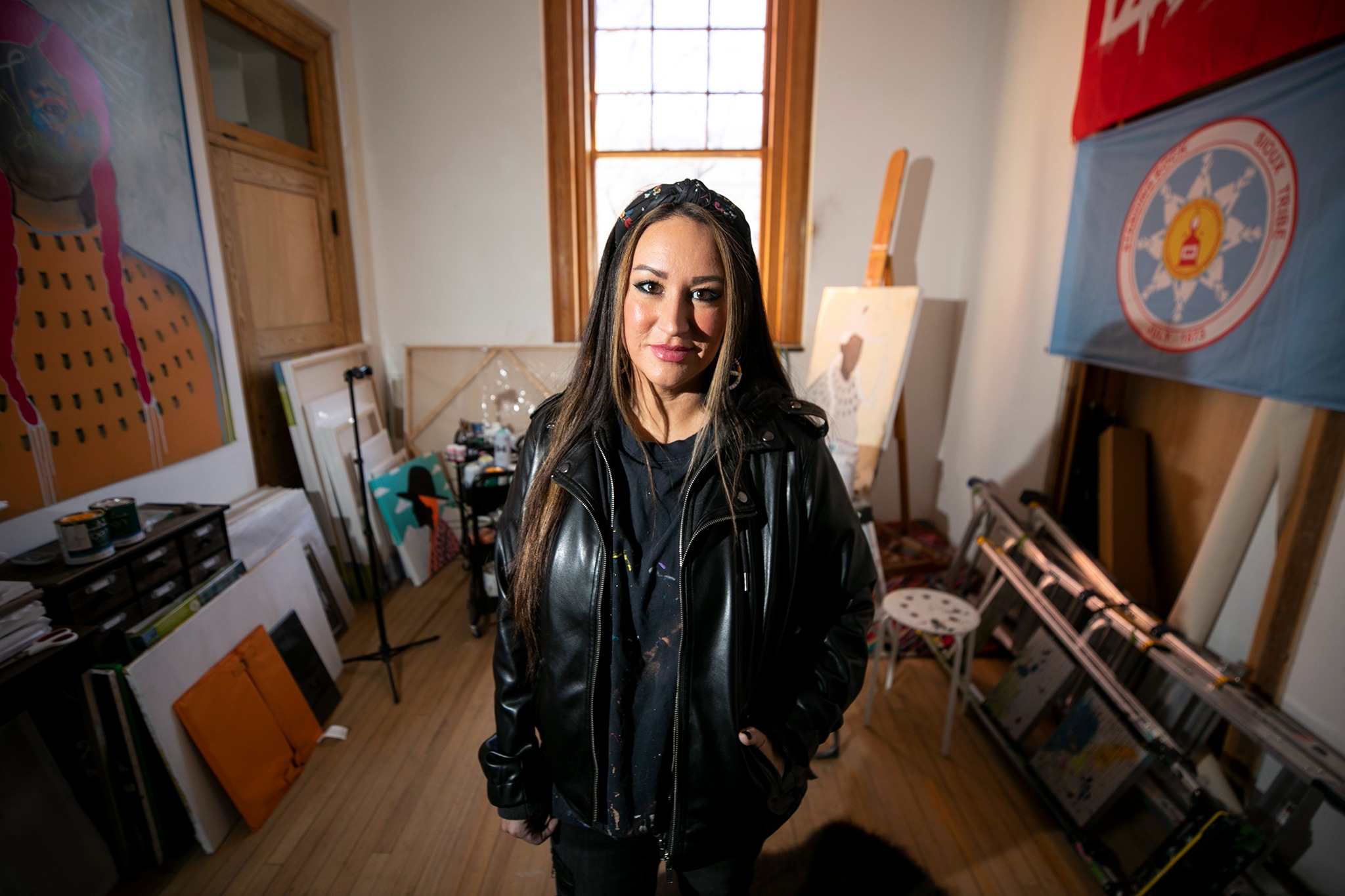
In a lawsuit filed by the American Civil Liberties Union (ACLU), a Colorado artist and citizen of the Standing Rock Sioux Tribe says the town of Vail violated her rights to free speech by revoking a summer art residency earlier this year.
Danielle SeeWalker, a Húŋkpapȟa Lakȟóta artist and muralist, was slated to be the town’s 2024 Artist in Residence but had the offer pulled over concerns about a social media post she made discussing the war in Gaza.
The post, published on April 18, was of a piece of SeeWalker’s art depicting a woman in a keffiyeh, a type of traditional Arab headdress, titled “G is for Genocide.” According to the lawsuit filed in federal court Monday, the art “expresses parallels Ms. SeeWalker sees between what is happening to Palestinians in Gaza and the genocide of Indigenous people in the United States.”
“Vail’s decision was driven by a number of prominent townspeople complaining about Ms. SeeWalker’s post on Instagram of her “G is for Genocide” artwork,” the lawsuit alleges. Attorneys from ACLU Colorado are representing SeeWalker.
A spokesperson for the town of Vail declined to comment on the suit, citing a policy of not discussing pending or active litigation. When the residency was first canceled the town issued a statement saying the work “raised concerns about the use of public funds to support a polarizing geopolitical issue.”
In the filing, attorneys say SeeWalker not only lost out on the residency program — which included a public mural near the town’s parking garage as well as community art classes — but that she lost business as a result of the cancellation, missed out on other professional opportunities, and “experienced the cancellation as a suppression of her views as both an artist and a person of color.”
Community blowback
A timeline of events included in the lawsuit notes that SeeWalker’s residency was publicly announced on May 6, a few weeks after her Instagram post commenting on Gaza. Shortly thereafter, community members began reaching out to Vail’s Art in Public Places (AIPP) program about concerns.
In a text message exchange included in the court filing, a staff member working on the Artist in Residence program reached out to SeeWalker to let her know about the change and that some members of the Jewish community were upset with the “G is for Genocide” post.
“Well, that is the beauty of art. It’s all about expression. Unfortunate,” SeeWalker replied to the message.
“It’s such a complicated situation … umph,” the AIPP employee replied.
“I wish they’d be just as upset with how Native people have/are treated. Anyway, I can call you when I land,” SeeWalker responded.
“Ahhhhhhhh … I’m not sure — I am at a total loss and shaking,” the employee said.
After the residency was canceled earlier this year, SeeWalker told CPR News the piece discussing the war in Gaza was meant to highlight humanitarian concerns.
"It was simply me expressing my culture, my histories as it relates to my ancestors, what they had gone through, and what's currently happening today to another group of oppressed people," SeeWalker said in May.
According to the lawsuit, the board overseeing the residency would have approval over the mural that SeeWalker was supposed to paint, and SeeWalker had no intention of making the piece about the war in Gaza.
The suit notes that the decision to cancel the residency ultimately came from the town of Vail, which amounts to a suppression of speech from the government. The lawsuit is seeking that the town of Vail be prohibited from discriminating against artists for works unrelated to the programs or viewpoints that they hold.
Among the reliefs sought in court, SeeWalker is asking for compensation “including, but not limited to those for past and future pecuniary and non-pecuniary losses, physical and mental pain, humiliation, fear, anxiety, loss of enjoyment of life, loss of liberty, privacy, and sense of security and individual dignity, and other non-pecuniary losses.”









